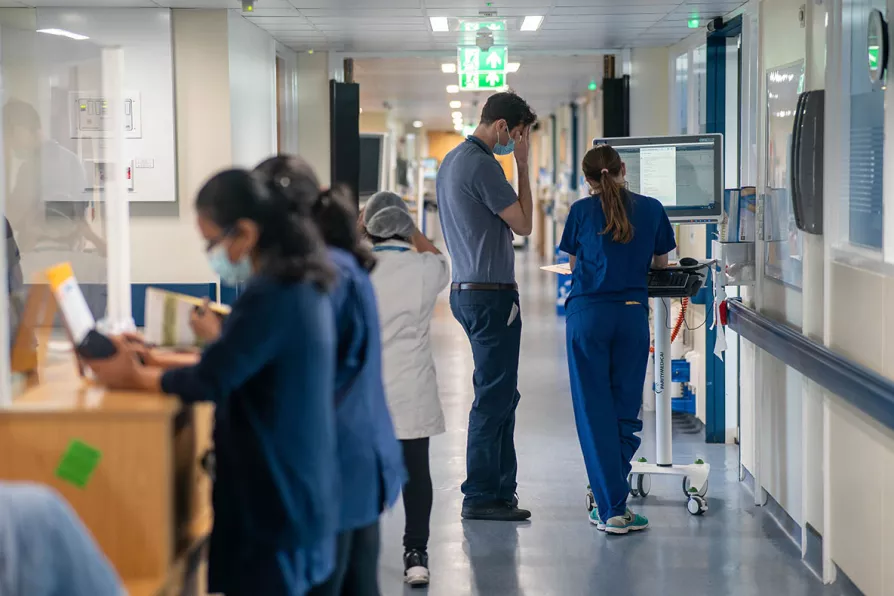
 A general view of staff on a NHS hospital ward, January 18, 2023
A general view of staff on a NHS hospital ward, January 18, 2023
PATIENTS in Scotland wait longer to receive less cancer care, according to a new report.
In a study published in medical journal the Lancet Oncology, University College London researchers working with the International Cancer Benchmarking Partnership (ICBP) looked at the experiences of 780,000 cancer patients in Australia, Canada, Norway and Britain between 2012 and 2017.
It found that all parts of the UK were less likely to treat people with chemotherapy than other countries, with Scotland using the treatment on only 29.3 per cent of patients — just 0.5 per cent more than lowest performer Northern Ireland — compared with 39.1 per cent in Norway, 38.5 per cent in Canadian provinces in the study, and 42.1 per cent in the Australian states of New South Wales and Victoria.













